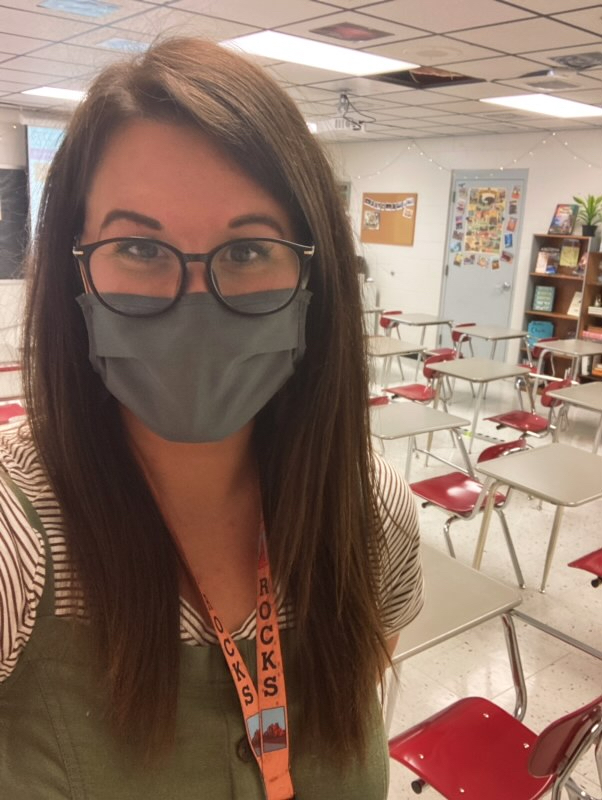Should You Tell Your Kid’s Teacher You’re Getting A Divorce?

“Not every student will turn to their teacher, but knowing that they can makes a difference for some.”
Every year, August marks a new season — back-to-school, the beginning of fall sports, and for some families, divorce. In the United States, divorce rates peak in March and August, leaving many kids settling into the school year as they’re struggling to navigate a new family dynamic.
Should you tell your child’s teacher if you’re getting a divorce?
We reached out to educators, therapists, and families of divorce to ask their opinions, starting with my own husband, who separated from his wife when my stepsons were 7 and 12. “We definitely told the boys’ teachers,” he said. “I’d always heard that they should have a heads up, in case there’s any acting out or emotional disruptions. We wanted them to know, this is what’s going on.”
Raise co-founder Erin Jackson’s parents separated when she was 13, and she credits her teachers for providing a support system though the “earth shattering” experience. “One of the hardest things was that my mom, the person I would normally use as a lifeboat, was unavailable to be that for me because she was directly involved in the thing that was causing me grief. I never wanted to show her how badly I was hurting because I never wanted her to feel guilty for something that wasn’t her fault.
My teachers went above and beyond. One teacher, whom I was especially close to, offered to be a safe and nonjudgmental listening ear when I needed one. Others simply showed me grace when my grades became inconsistent or I was drowsy during the day (depression will do that to you). They carried me through my school days, sometimes secretly and sometimes outright, when I wasn’t quite able to carry myself.”
Erin’s mother, Sarah, suggests “a short and to the point conversation with teachers, sharing basic details about the practical impacts on your child’s life — moving, custody arrangements, that sort of thing.”
Each of the therapists and educators I spoke to agreed that if your child is in elementary school, it’s beneficial for their teacher to be in the know. For younger kids, the effects of divorce can present as anxiety, regression, behavioral issues, and even self-esteem struggles. “Children’s sense of the world is very egocentric,” explains Caroline Keystone, a family therapist in Berkeley, California. “Not in the way that we normally talk about ego – children tend to think things are because of them. So they may really be struggling with why their parents got divorced. They may think it’s their fault.” Not to mention situations where children are dealing with extreme differences in rules, homework standards, and bedtime schedules at two separate homes. Merryl Cronrod, a veteran kindergarten teacher in Malibu, California explains, “It’s very helpful to not only know about a divorce, but to know of any change in a child’s life, such as Dad or Mom going away on business.” Any disruption to their normal routine or structure can cause a reaction, and most children are not articulate enough to explain how they are feeling internally.
But when it comes to middle and high school-aged students, Keystone advises to talk to your child before you inform their teachers. Many teenagers don’t want to stand out or have anyone feel sorry for them for any reason. Telling their teachers without their knowledge risks making them feel infantilized. “I come from the point of view that it’s imperative to show teenagers respect, even as their parent. It’s incredibly important to their development. The consistent theme that I hear them from the teenagers I work with — even the ones with well-intentioned parents — is that they feel like they don’t matter. They feel unheard.” Of course, if your child is having problems in school, speaking to a teacher may become necessary. But prior to that, Keystone believes it’s best to encourage – or rather, give permission – for your student to reach out themselves, if they wish to do so. Encourage them to speak to an adult who can serve as a neutral and safe space. Arkansas middle school teacher Callie Day agrees. “Help your child create a list of adults they can talk to for when the don’t feel comfortable talking to you. Write down the list and give them a copy. And get those people on board the no-bashing-the-other-parent train. When the kids talk to them, it’s about the kids and only the kids.” Use this as an opportunity to set an example for how to approach stress and mental health moving forward. Craig Ford, a fellow middle school teacher and former school counselor from Arkansas, reminds parents that, “Even though divorce is a very personal event for a family, it doesn’t stay private. It’s best if the child can learn how to process their pain and receive support from caring people around them, rather than holding on to a crippling secret. Do we really want to raise more people who don’t know that’s it best to seek help when they are hurting emotionally?”
In secondary school, any one child can have up to seven teachers, but teachers remain extraordinarily invested, even in students they only see for one period a day. Shelby Tate, a 7th grade English teacher in Kansas, shares, “Being in the know allows me to give grace to the student who couldn’t complete her homework or didn’t read the chapter the night before because she got home and had to pack a bag to go to Mom’s house, where the internet is weaker than at Dad’s, and by the time she got there, she was too emotionally drained to even attempt the assignment. I want to teach my little 12-year-olds the fundamentals of English, but more than that, I want them to be happy. Whenever a teacher can help a student be happier, we feel like we’re making a difference.”
Depending on the circumstances of the split, there can be logistics for schools to consider as well. Not all divorce battles play out in the carpool lane, but some do, and it’s important that teachers and administrators have the information they need to keep a child safe. “We don’t need to know all the details, but we have a lot of communication with parents, and depending on the situation, we may need to add or remove one of them from the communication log,” explains Erin Jenks, a middle school teacher in South Carolina.
In our own school district, all parents, divorced or not, sign a piece of paper at the beginning of the year agreeing to keep any custody arguments off campus. Obviously, the form was created out of necessity, which proves Ford’s point that divorce never remains private. “It’s heartbreaking to watch a student carry this weight when they don’t have someone to talk to,” adds Jenks. “Not every student will turn to their teacher, but knowing that they can makes a difference for some.”
Did you tell your child’s teacher you were getting a divorce? We’d love for you to share your advice in the comments.
Jessica Butler is the co-founder of Raise, stepmother of two, and adoptive mother of one. Prior to Raise, she was a writer on USA’s "In Plain Sight" and TNT’s "The Last Ship." She and her husband, writer/producer Warren Bell, co-created the Nick at Nite series "Instant Mom," based on her life as a stepmother. She lives in Los Angeles with her husband and six-year-old son, Levon.



Nice content and ideas that every divorce person can refer through it.